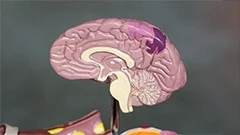Introduction
Hypersensitivities, also known as allergic responses or hypersensitivity reactions, are a class of exaggerated immune responses to otherwise harmless substances (allergens). These reactions are characterized by an overproduction and inappropriate activation of the immune system, leading to symptoms that range from mild to life-threatening. This course aims to provide a comprehensive understanding of hypersensitivities, their causes, mechanisms, and clinical manifestations.
Definition and Classification
Hypersensitivities can be classified into four types based on the immune responses they induce: Type I, Type II, Type III, and Type IV reactions. Each type is characterized by specific immune cells, mediators, and pathological outcomes.
Type I Hypersensitivity
Type I hypersensitivity, also known as immediate hypersensitivity, is mediated by IgE antibodies and involves mast cell activation. It is responsible for common allergic disorders such as asthma, rhinitis, and anaphylaxis.
Type II Hypersensitivity
Type II hypersensitivity involves the formation of immune complexes that activate complement components and phagocytic cells, leading to tissue damage in autoimmune diseases and some allergies. Examples include autoimmune hemolytic anemia and Graves' disease.
Type III Hypersensitivity
Type III hypersensitivity is characterized by the formation of immune complexes that deposit in tissues, causing inflammation and damage. Arthritis and serum sickness are examples of this type of hypersensitivity.
Type IV Hypersensitivity
Type IV hypersensitivity, also known as delayed-type hypersensitivity (DTH), is mediated by T cells and involves the release of cytokines and chemokines. It is responsible for diseases such as contact dermatitis, tuberculosis, and certain autoimmune disorders.
Mechanisms of Hypersensitivities
The mechanisms underlying hypersensitivities involve various immune cells, mediators, and signaling pathways. These processes are crucial in understanding the pathogenesis of allergic and autoimmune diseases.
Antigen Recognition and Presentation
Antigens are foreign substances that trigger an immune response. They can be proteins, peptides, polysaccharides, or other molecules. The immune system recognizes antigens through specific receptors on the surface of immune cells such as B cells, T cells, and dendritic cells.
Activation of Immune Cells
Activation of immune cells is a critical step in hypersensitivity reactions. This process involves the binding of antigens to their respective receptors, followed by intracellular signaling cascades that lead to the activation and proliferation of immune cells.
Mediator Release and Inflammation
Activated immune cells release various mediators such as cytokines, chemokines, histamine, and leukotrienes, which induce inflammation, vasodilation, and tissue damage. These mediators act on target cells by binding to specific receptors, leading to the activation of intracellular signaling pathways that promote inflammatory responses.
Clinical Manifestations and Treatment
The clinical manifestations of hypersensitivities depend on the type, duration, and severity of the immune response. These reactions can range from mild symptoms such as itching, redness, and swelling to severe anaphylactic shock, which is a life-threatening emergency.
Treatment strategies for hypersensitivities aim to alleviate symptoms, prevent future reactions, and control the underlying immune response. Common treatments include antihistamines, corticosteroids, epinephrine, and immunosuppressive drugs. In some cases, desensitization therapies may be used to reduce allergic sensitivity over time.
MCQ: Test your knowledge!
Do you think you know everything about this course? Don't fall into the traps, train with MCQs! eBiologie has hundreds of questions to help you master this subject.
These courses might interest you
Create a free account to receive courses, MCQs, and advice to succeed in your studies!
eBiologie offers several eBooks containing MCQ series (5 booklets available free for each subscriber).



